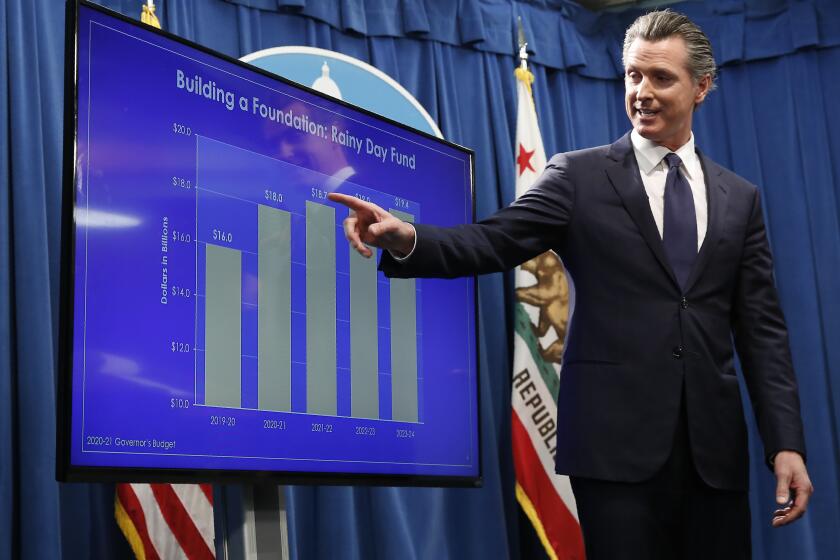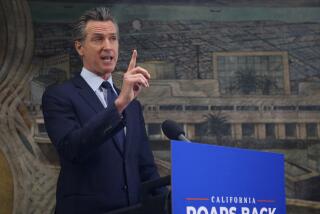Am I eligible for the proposed $600 stimulus checks in California? What you need to know

SACRAMENTO â Gov. Gavin Newsom unveiled an economic recovery plan for California on Monday aimed at help residents as the COVID-19 pandemic begins to fade.
Californiaâs economy is opening up rapidly amid falling COVID-19 numbers, but economic pain persists.
The proposal to deliver $8 billion in new cash payments to millions of Californians is part of a $100-billion economic stimulus plan.
The proposal to deliver $8 billion in new cash payments to millions of Californians amid the COVID-19 pandemic is part of a $100-billion state budget that has swelled with a significant windfall of tax revenues.
This would be the second round of state stimulus checks proposed by the governor.
In February, the governor signed legislation to provide 5.7 million low-income Californians with $2.3 billion in state stimulus checks. The money was provided for residents including those earning $30,000 a year or less who receive the state Earned Income Tax Credit. It also went to people who file tax returns with an individual taxpayer identification number but who donât have a Social Security number, the bulk of whom are immigrants in the country illegally.
Families who file with an identification number and receive CalEITC have been eligible for up to $1,200 in the first round. The state said this month that so far 2.5 million Golden State Stimulus payments worth $1.6 billion have been issued.
Here are key points of the new plan:
Stimulus checks
The proposal calls for $600 stimulus checks for eligible Californians. Families with children would get an additional $500. The plan breaks down this way:
⪠$600 direct payments to all taxpayers who make up to $75,000 a year who did not receive a first payment
⪠Additional $500 in direct payments to families with dependents
⪠Additional $500 in direct payments to undocumented families
Rental assistance
- Newsom also proposed $5 billion to double rental assistance to get 100% of back rent paid for those who have fallen behind.
- He has also proposed as much as $2 billion in direct payments to pay down utility bills that are overdue.
Gov. Gavin Newsom will roll out this week what his advisors say is a $100-billion âCalifornia Comeback Plan,â beginning with $8 billion in cash payments to millions of the stateâs residents.
The big picture
- The plan still needs approval from the Legislature.
- It was made possible in part by a budget that has swelled with a significant windfall of tax revenues, a surplus the governor put at $75.7 billion.
- State officials said the cash payments were triggered in part by a 1979 voter-approved state constitutional amendment that requires tax rebates when revenues exceed a cap on government spending.
- By law, half of that must go to public schools and the other half to taxpayer rebates â in this case, targeted toward middle-class adults and families. The budget windfall has been driven by strong capital gains on the investments earned by Californiaâs wealthiest taxpayers. The taxes paid by the top 1% of the stateâs earners have accounted for as much as half of all income tax revenue in some years.
- Newsom is facing a recall election this fall over his handling of the COVID-19 crisis, including an aggressive shutdown of the economy.
More to Read
Sign up for Essential California
The most important California stories and recommendations in your inbox every morning.
You may occasionally receive promotional content from the Los Angeles Times.














